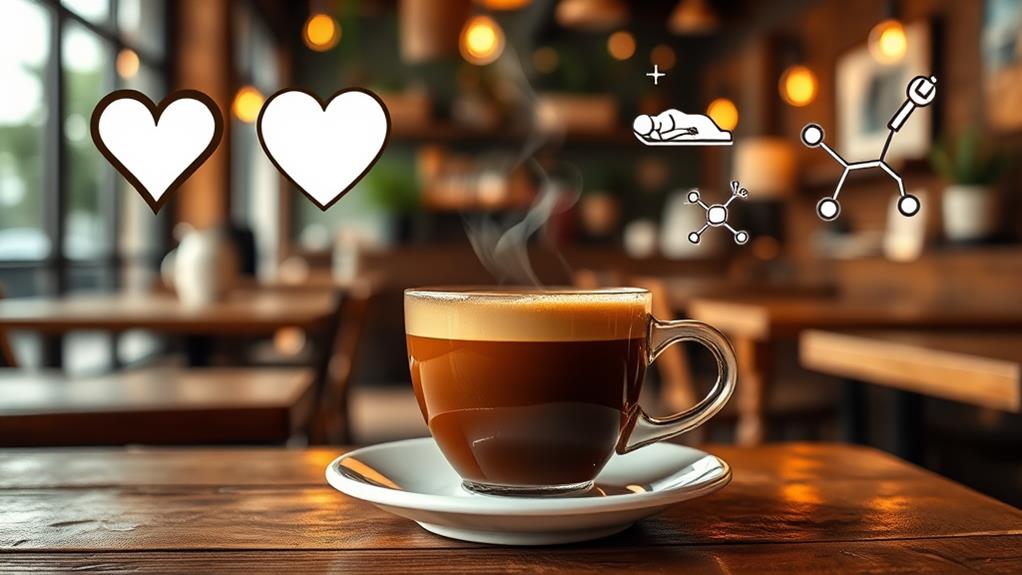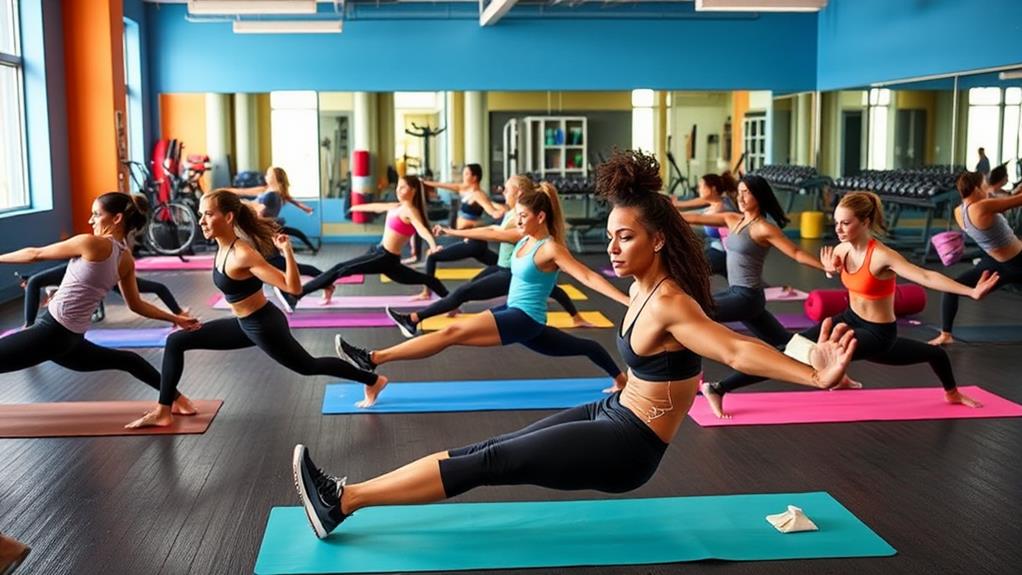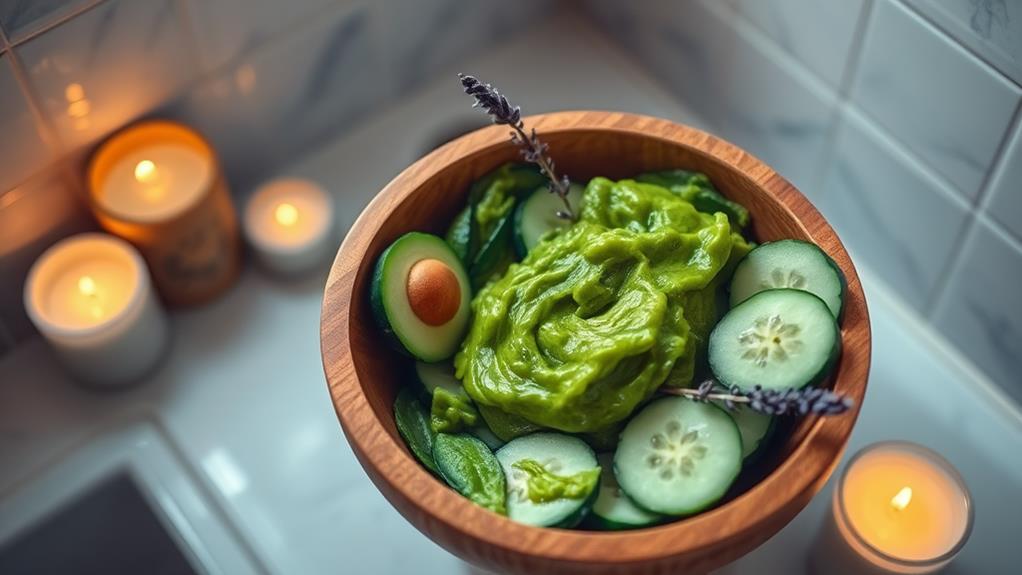You might think you know everything about your daily cup of coffee, but some widely held beliefs are surprisingly misleading. For instance, many people still believe that coffee stunts growth or that dark roast packs more caffeine than light roast. What if I told you these notions are just myths? As you sip your favorite brew, consider how these misconceptions shape your perception of coffee's effects. Curious about what else you might have wrong? Let's explore these myths and uncover the truths behind your cherished beverage.
Key Takeaways
- Coffee stunts growth is a myth; height is primarily determined by genetics and nutrition, not coffee consumption.
- Dark roast coffee does not contain more caffeine than light roast; caffeine levels depend on the bean type and brewing method.
- Coffee causes dehydration is false; it contributes to hydration despite its mild diuretic effect.
- Espresso is not stronger in caffeine than brewed coffee; an 8-ounce cup often has more caffeine than a shot of espresso.
- Decaf coffee still contains some caffeine, averaging 2 to 5 milligrams per cup, contrary to the belief that it's completely caffeine-free.
Coffee Stunts Growth
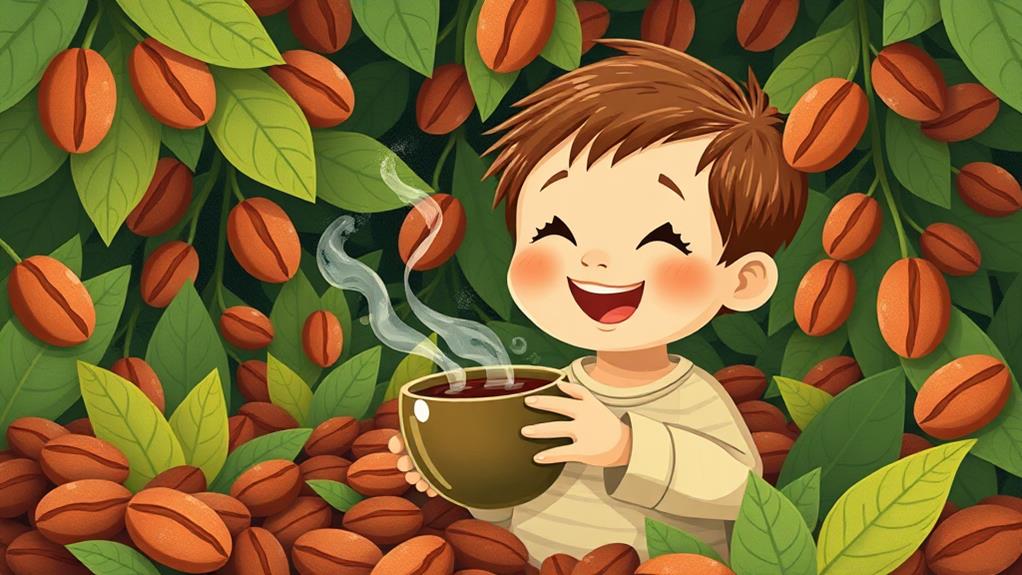
When it comes to the myth that coffee stunts growth, many people might be surprised to learn there's little evidence to support this claim.
Studies show that coffee doesn't actually have a negative effect on height. Instead, factors like genetics, nutrition, and overall health play a much bigger role.
So if you enjoy sipping a warm cup of coffee, go ahead! It's not going to make you shorter.
Plus, coffee can even have some benefits, like improving focus and energy levels.
Just remember, moderation is key! Drinking too much can lead to other issues.
Dark Roast Has More Caffeine
Many coffee drinkers assume that dark roast coffee packs more caffeine than its lighter counterparts. This myth can be a bit misleading!
In reality, the caffeine content in coffee mostly depends on the coffee bean type and how you measure it. When you brew a cup, the coffee ground's weight matters. If you measure by volume, light roast beans tend to have slightly more caffeine because they're denser.
So, if you're looking for a jolt of energy, try using the same amount of ground coffee regardless of roast. Remember, the taste can be rich and bold with dark roasts, but it doesn't mean you'll get more caffeine.
Enjoy your coffee, and choose the roast you love best!
Coffee Causes Dehydration
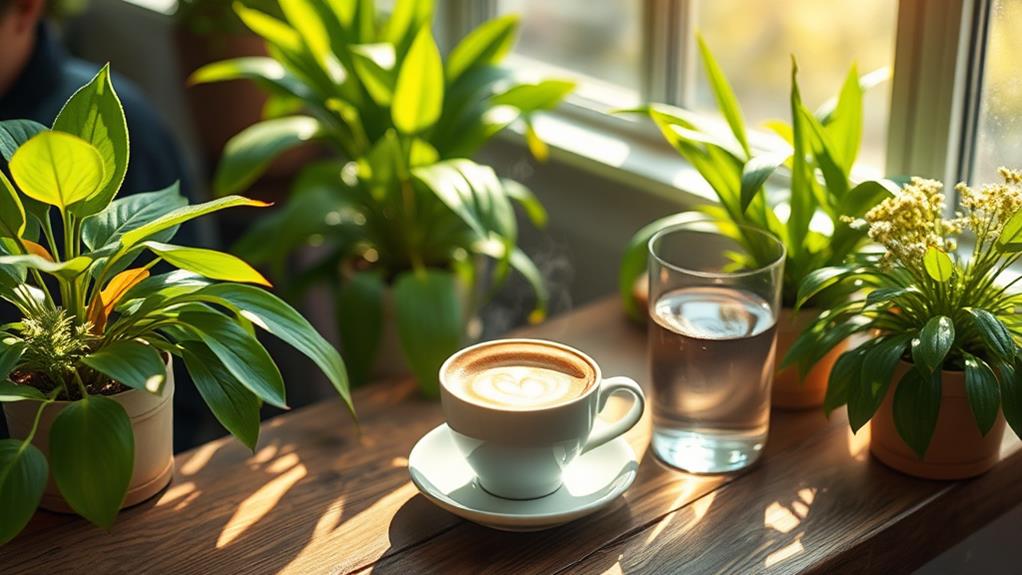
The belief that coffee causes dehydration is a common misconception among caffeine enthusiasts. Many people think that because coffee is a diuretic, it makes you lose more water.
However, studies show that the fluid you get from coffee actually helps keep you hydrated. When you drink a cup, you're consuming liquid, which counts toward your daily hydration goals.
While it's true that caffeine can have a mild diuretic effect, it's not strong enough to outweigh the hydration benefits of the beverage.
So, don't worry! Enjoy your coffee without guilt. It can be part of a balanced hydration routine.
Just remember to drink water throughout the day too, and you'll be well on your way to staying hydrated and feeling great!
Espresso Is Stronger Than Brewed Coffee
Espresso often gets a reputation for being stronger than brewed coffee, but that's not entirely accurate.
While espresso has a richer flavor and a thicker texture, it actually contains less caffeine per ounce than brewed coffee. A typical shot of espresso has about 63 milligrams of caffeine, while an 8-ounce cup of brewed coffee can pack around 95 milligrams or more.
So, if you're looking for a caffeine kick, brewed coffee might be your best bet!
The brewing process is different too; espresso uses high pressure to extract flavors quickly.
So, while espresso feels intense, it's not necessarily stronger in caffeine.
Enjoy both types, and you'll find something delightful in each cup!
Drinking Coffee Is Bad for Heart
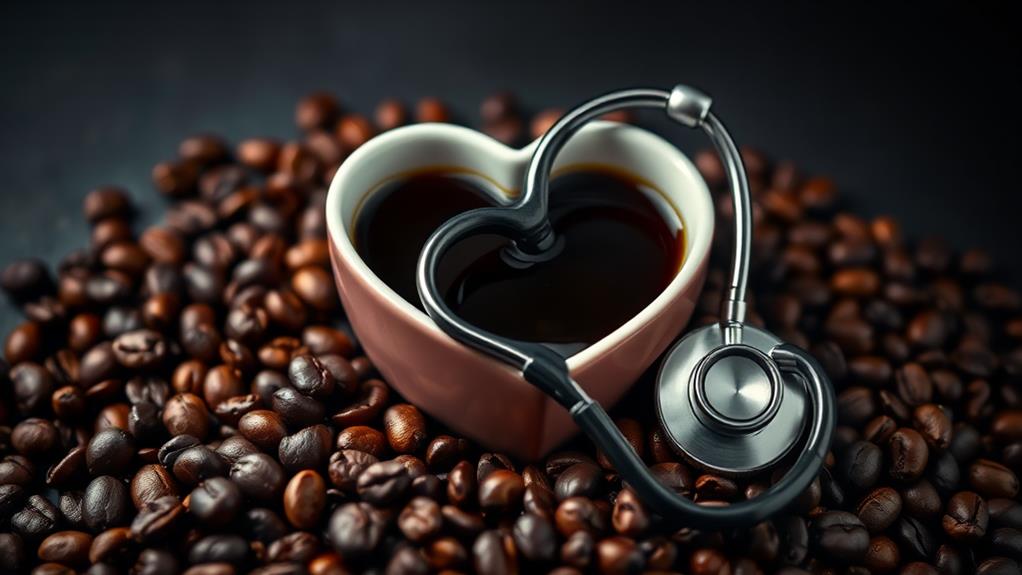
While you might savor every sip of your espresso or brewed coffee, you may have heard that drinking coffee can be harmful to your heart.
The truth is, recent studies show that moderate coffee consumption can actually have heart benefits! Drinking a few cups a day might help lower your risk of heart disease.
It's packed with antioxidants, which are great for your overall health. Of course, if you drink too much, it could raise your heart rate or blood pressure, so moderation is key.
So, enjoy your favorite brew without worry! Remember, it's all about balance. Your heart can be happy while you indulge in that delicious cup of coffee.
Keep sipping and keep smiling!
Coffee Is Addictive
Many people believe coffee is addictive, and there's some truth to that notion. When you drink coffee, its main ingredient, caffeine, affects your brain and body. This can make you feel more alert and energetic, which is why you might crave that morning cup.
However, it doesn't mean you're "hooked" in a bad way. You might just enjoy the boost it gives you! If you skip your coffee for a day, you may feel a bit tired or have a headache, but that usually goes away quickly.
It's all about how your body gets used to it. So, if you love coffee, enjoy it in moderation, and don't stress too much about being addicted. It's all about balance!
Coffee Can Replace Sleep
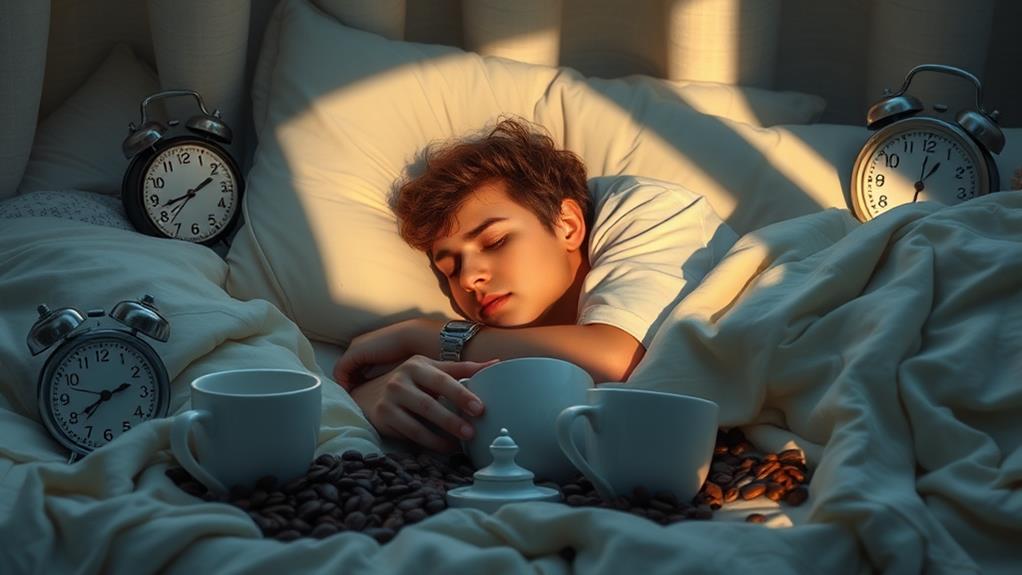
Relying on coffee to power through your day might seem like a quick fix for sleep deprivation, but it's not a sustainable solution.
Sure, that warm cup can give you a boost, but it doesn't replace the rest your body needs. When you skip sleep, your focus and energy drop, making it harder to tackle tasks.
Instead of relying solely on coffee, try to prioritize sleep. Aim for a solid 7-9 hours each night to help your body recharge.
If you find yourself yawning, consider short naps to refresh your mind.
All Coffee Is Acidic
Not all coffee is created equal when it comes to acidity. You might think every cup packs a punch, but that's not the case!
Some coffee types have lower acidity levels, making them gentler on your stomach. For instance, dark roasts tend to be less acidic than lighter ones.
Also, cold brew coffee usually has a smoother, less acidic taste, so if you're sensitive, give it a try! You can also look for beans labeled as "low-acid" for a milder experience.
Don't be afraid to experiment with different brewing methods and coffee varieties. Finding your perfect cup can make a big difference!
Enjoy your coffee journey, and remember, there's a whole world of flavors waiting for you!
Decaf Coffee Is Completely Caffeine-Free
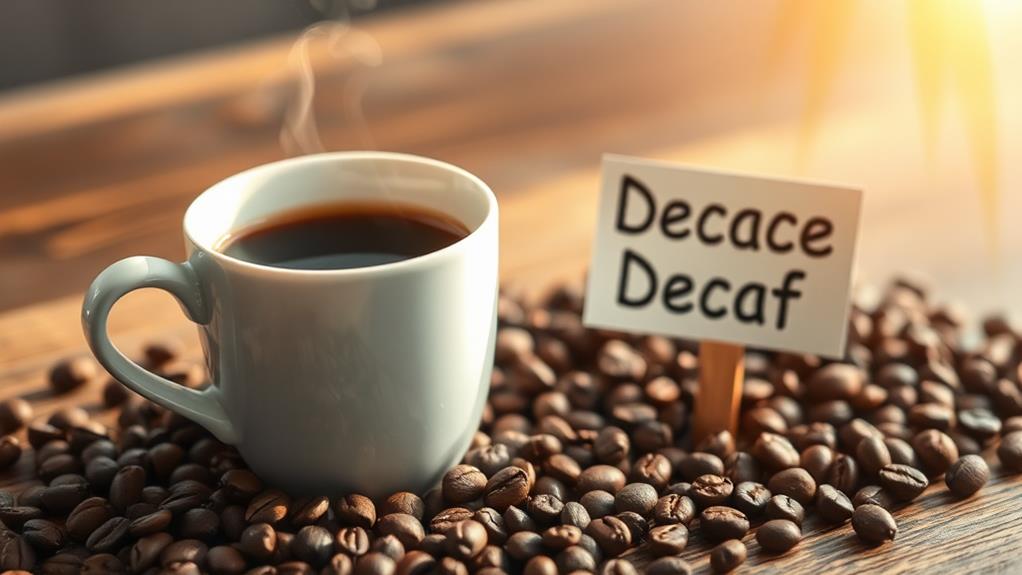
Surprisingly, decaf coffee isn't completely caffeine-free. While it's true that decaf has less caffeine than regular coffee, it still contains some.
On average, a cup of decaf can have about 2 to 5 milligrams of caffeine, depending on how it's made. That's way less than the 95 milligrams in a regular cup, but it's not zero!
So, if you're super sensitive to caffeine or trying to avoid it altogether, keep this in mind. Decaf can still give you a little boost, just not as much as regular coffee.
Enjoying decaf is still a great choice if you love the taste of coffee without the jitters. So go ahead, sip that decaf, and enjoy every drop!
